Search Images
Browse Content (p. 1364)
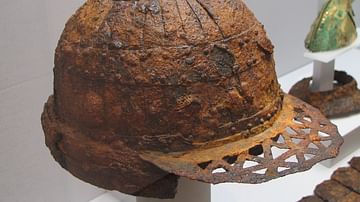
Image
Gaya Iron Helmet
An iron helmet from the Gaya confederacy (42-532 CE), Korea. 5th-6th century CE. (National Museum of Korea, Seoul, South Korea)
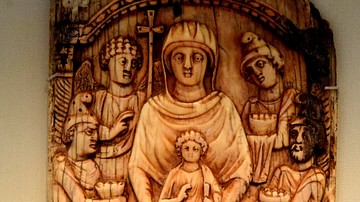
Image
Byzantine Ivory Panel Depicting the Adoration of the Magi
The Virgin, in the center, sits and holds the child Christ in her lap. To the left behind her right shoulder, an angel carries a cross-staff. The 3 Magi (dressed in trousers, chlamyses and Phrygian caps) present their offerings with veiled...
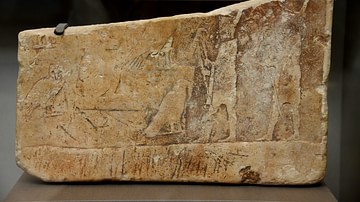
Image
Sed Festival Relief
Stone slab, probably an artist's practice piece, depicting a Sed festival scene. Appearing twice, the king wears the Red Crown of Lower Egypt and the special festival robe. He holds the crook and flail. Before him, the seated baboon is the...
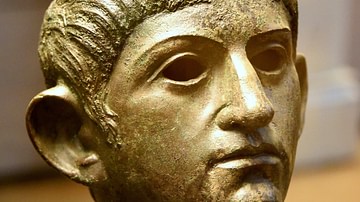
Image
Empreror Claudius or Nero
This head, found in 1907 CE, formed part of a large life-size bronze statue of an emperor, probably Claudius (reigned 41-54 CE), who led the invasion of Britain in 43 CE, or Nero (reigned 54-68 CE). Such portraits were set up in public and...
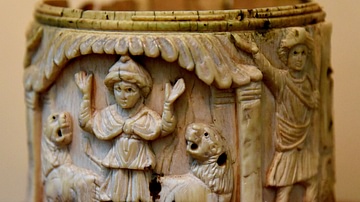
Image
Byzantine Ivory Pyxis
This pyxis once had a lockable lid and was perhaps used to hold sacramental bread. Its carvings refer to the Biblical tale of Daniel in the lions' den. Byzantine, 5th or early 6th century CE. From modern-day Egypt or Syria. (The British Museum...

Image
Pharaoh, Victim of the 10th Plague of Egypt
A late 19th century CE painting by Tissot depicting Pharaoh as the victim of the tenth plague of Egypt where all first-born males are killed.
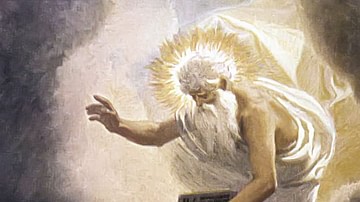
Image
Moses Receives the 10 Commandments
A c. 1900 CE oil painting by Gebhard Fugel depicting Moses receiving the Ten Commandments from God on Mt. Sinai.

Image
Moses on Mount Sinai
A 19th century CE oil painting by Jean-Léon Gérôme depicting Moses receiving the Ten Commandments from God on Mt. Sinai.
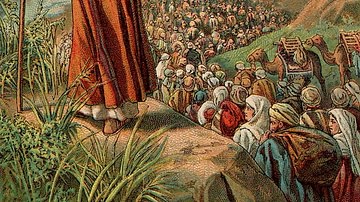
Image
Moses & the Parting of the Red Sea
A 1907 CE Bible card depicting Moses and the parting of the Red Sea.
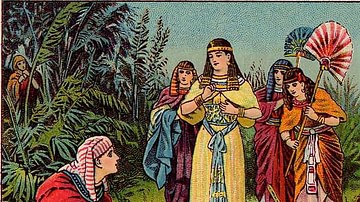
Image
Moses Found by Pharaoh's Daughter
A 1900 CE Bible card illustrating the baby Moses found by the pharaoh's daughter.